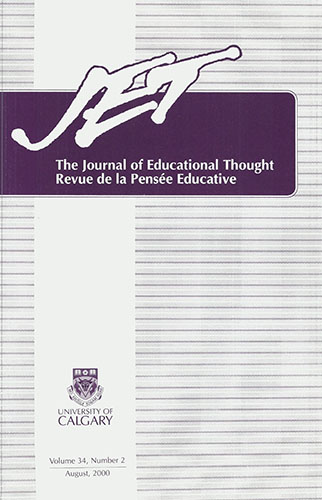Relations of Power and Drama in Education: The Teacher and Foucault
DOI :
https://doi.org/10.55016/ojs/jet.v34i2.52656Résumé
The advantages of interweaving drama into education appear numerous as opportunities exist for improved literacy, multiple interpretations, increased collaboration, and problem solving. However, drama may not be playing out the liberatory role for which it was intended. Inspired by Foucault, it is this paper's intent to unmask the discursive practices inherent in drama as they occur in education. Power relations are revealed. Subjects are exposed. Strategies are unraveled. Resistance to controlling ideology and methodology is encouraged.
Téléchargements
Téléchargements
Publié-e
Numéro
Rubrique
Licence
The Journal of Educational Thought retains first publication rights for all articles. The Journal grants reproduction rights for noncommercial educational purposes with the provision that full acknowledgement of the work’s source be noted on each copy. The Journal will redirect to the appropriate authors any inquiries for further commercial publication of individual articles. All authors wishing to publish in JET will be asked to fill in and sign a Consent to Publish and Transfer of Copyright agreement.
Authors must affirm that any submission to JET has not been and will not be published or submitted elsewhere while under considration by JET.

